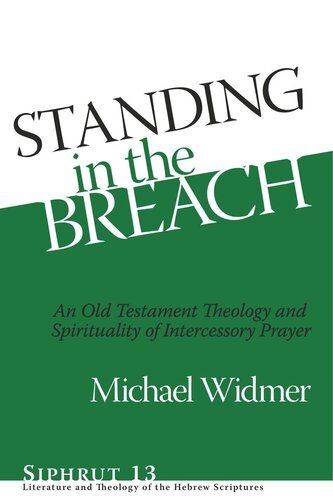

Most ebook files are in PDF format, so you can easily read them using various software such as Foxit Reader or directly on the Google Chrome browser.
Some ebook files are released by publishers in other formats such as .awz, .mobi, .epub, .fb2, etc. You may need to install specific software to read these formats on mobile/PC, such as Calibre.
Please read the tutorial at this link: https://ebookbell.com/faq
We offer FREE conversion to the popular formats you request; however, this may take some time. Therefore, right after payment, please email us, and we will try to provide the service as quickly as possible.
For some exceptional file formats or broken links (if any), please refrain from opening any disputes. Instead, email us first, and we will try to assist within a maximum of 6 hours.
EbookBell Team

4.7
106 reviewsAt the heart of this study is a biblical-theological approach to central passages on intercessory prayers in the OT. After examining these largely prophetic prayer dialogues, Widmer argues that they provide an important key to biblical theology and spirituality. Furthermore, a close reading of prayers by Abraham, Moses, Samuel, David, Solomon, Isaiah, Jeremiah, Joel, and Amos reveals fascinating insights into the portrayals of these characters and confirms strong conceptual associations with Moses, Israel’s archetypal mediator. Widmer reads these prayers in both their immediate literary and wider canonical contexts. The ultimate aim of this study is to gain a deeper understanding of the God whom the church worships and confesses to be the Father of Jesus Christ.
Particularly pertinent is the finding that many OT prayers interact with God’s nature as revealed to Moses in Exod 34:6–7. Yhwh’s fullest revelation is also given in the context of an intercessory prayer. Widmer argues that intercessory prayer and theology have a hermeneutical-spiral relationship, mutually informing and correcting each other. It is in engaging with a loving and holy God that the phenomenon of divine mutability must be understood. Overall, Standing in the Breach suggests that fundamental biblical themes such as God’s mercy and judgment, divine retribution and forgiveness, covenant mediation, substitutionary suffering and atonement, and eventually the dynamics of the cross are all intrinsically related to and illuminated by prophetic OT intercessory prayers.